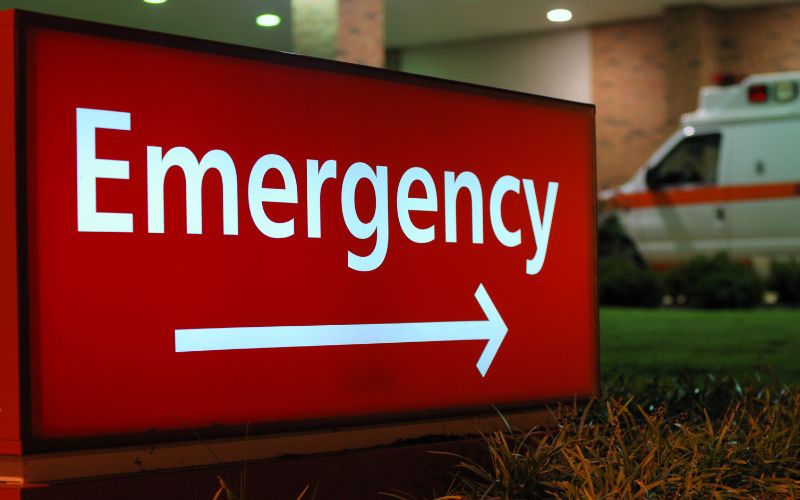
- Details
- By Levi Rickert
Opinion. The Trump administration released new details about its 2026 budget, which includes the Department of Health and Human Services (HHS) Budget in Brief. As with past budgets, this document was rolled out with the usual talking points: commitment to tribal sovereignty, honoring federal trust obligations, and improving health outcomes for Native people.
But reading between the lines — and looking at the numbers — reveals a familiar story: symbolic gestures, flat funding, and broken promises.
The proposed $8.1 billion for the Indian Health Service (IHS) may look like progress on the surface, but Tribal leaders and health advocates know better. Most of the "increase" comes from mandatory spending tied to contract support costs and facility leases — obligations the federal government is legally bound to fulfill. That’s not new investment. That’s just keeping the lights on.
And it’s not even enough to do that. IHS has stated it needs $9.5 billion in fiscal year 2026 to meet baseline health care needs for Native communities — a figure that far exceeds the administration’s proposal.
Even more troubling is what’s missing: advance appropriations for IHS. Despite years of advocacy from tribal leaders, health care providers, and bipartisan support in Congress during the Biden administration, the Trump administration sidesteps this critical provision. It’s a glaring omission that puts Native lives at risk.
When the federal government shuts down — which has happened more than once in recent years — every federal health program continues to operate with funding in place. Every program, that is, except the Indian Health Service (IHS). Advance appropriations insulates the IHS from political gridlock, ensuring consistent healthcare delivery regardless of Washington dysfunction.
To omit this is not just an oversight — it’s a betrayal of the federal trust responsibility.
While the budget includes modest gains in specific areas like dental services ($5 million), mental health ($1 million), and Purchased/Referred Care ($6 million), these are crumbs when compared to the real need. They do not even begin to address the chronic underfunding that has plagued IHS for decades. Native people still die younger, get sicker more often, and face more barriers to care than any other group in the United States. These are not statistics. They are lives. Our relatives.
There are some bright spots. The new $80 million Native American Behavioral Health and Substance Use Disorder Program provides much-needed investment in culturally grounded mental health and addiction services. But even this feels like a half-step forward while the ground erodes beneath our feet.
The reauthorization of the Special Diabetes Program for Indians (SDPI) at current levels is a win for Indian Country, though the administration had initially proposed a funding decrease. That proposal should never have been on the table. SDPI is one of the most effective public health programs ever implemented in Native communities, and cutting it would have been an act of cruelty disguised as fiscal restraint.
Beyond IHS, deeper cuts across HHS — including a $17 billion reduction to the National Institutes of Health — raise further alarms. Research into Native-specific health disparities, maternal health, and chronic disease prevention could be set back years. Meanwhile, proposals to eliminate or relocate programs like the CDC’s Healthy Tribes and to transfer Native Elder Services to the Administration for Children and Families seem to move us backward in both visibility and autonomy.
These changes may appear bureaucratic, but the ripple effects are felt in our tribal communities: fewer grants, less support, and more confusion about where to turn for culturally appropriate services.
To its credit, the Trump administration has reiterated its support for tribal sovereignty and self-governance throughout the process. Words matter. But actions matter more.
If this administration is serious about honoring its trust responsibility, it must do more than acknowledge tribal nations in budget footnotes. It must listen — truly listen — to the voices of tribal leaders who have long made clear what is needed: sustained investments, structural reforms, and respect for Native self-determination.
Congress now has the opportunity — and responsibility — to fix what this budget got wrong. The House and Senate Appropriations Committees must work hand-in-hand with Tribal nations, not around them, to ensure that the final fiscal 2026 budget lives up to the promises this country made generations ago.
We know as tribal nations, our people have endured centuries of broken treaties and half-kept promises. The least we can expect — and demand — in 2025 is a budget that does not treat our lives, our health, and our future as the ongoing “Indian problem.”
Thayék gde nwéndëmen - We are all related.
More Stories Like This
Extending the Affordable Care Act Is a Moral Imperative for Indian CountryAll Is Fair in … War?
Why Federal Health Insurance Policy Matters to Cherokee Nation
The Absence of October's Job Report Shows Why Native American Communities Need Better Data
Tribal IDs Are Federally Recognized. ICE Agents Are Ignoring Them.
Help us defend tribal sovereignty.
At Native News Online, our mission is rooted in telling the stories that strengthen sovereignty and uplift Indigenous voices — not just at year’s end, but every single day.
Because of your generosity last year, we were able to keep our reporters on the ground in tribal communities, at national gatherings and in the halls of Congress — covering the issues that matter most to Indian Country: sovereignty, culture, education, health and economic opportunity.
That support sustained us through a tough year in 2025. Now, as we look to the year ahead, we need your help right now to ensure warrior journalism remains strong — reporting that defends tribal sovereignty, amplifies Native truth, and holds power accountable.
 The stakes couldn't be higher. Your support keeps Native voices heard, Native stories told and Native sovereignty defended.
The stakes couldn't be higher. Your support keeps Native voices heard, Native stories told and Native sovereignty defended.
Stand with Warrior Journalism today.
Levi Rickert (Potawatomi), Editor & Publisher


